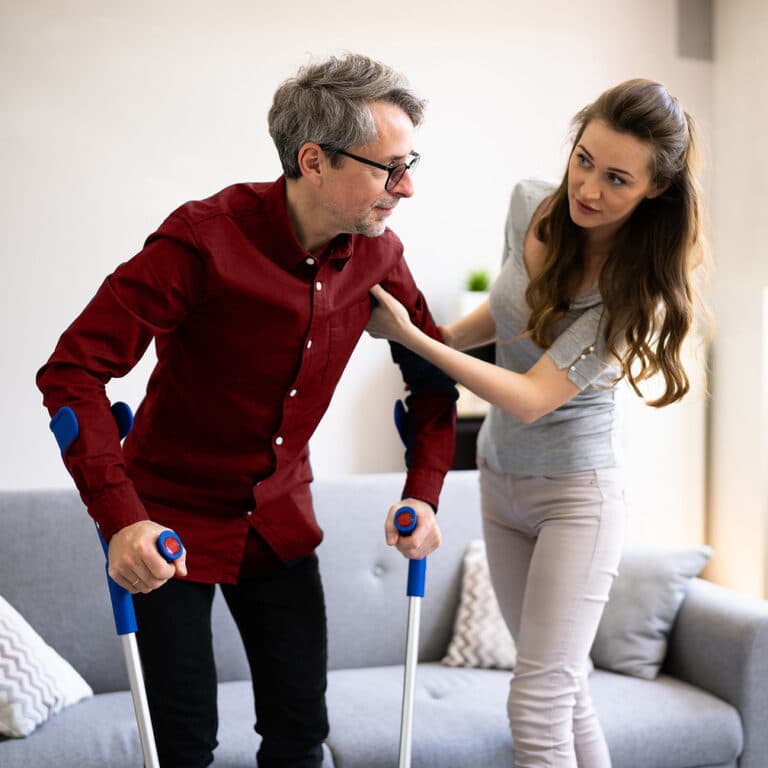Home Care Helps Seniors with Parkinson’s Disease Stay Healthy
Home care can be an invaluable resource for seniors with Parkinson’s disease, providing them with the support they need to continue living safely and independently at home. Here’s a look at how home care can help seniors with Parkinson’s disease.
First, it’s important to understand what Parkinson’s disease is. Parkinson’s disease is a progressive neurological disorder that affects movement. It is caused by a loss of cells in the brain that produce dopamine, a chemical that helps transmit messages between the brain and the body. Symptoms of Parkinson’s disease can include tremors, stiffness, and difficulty with balance and coordination. The disease can also cause non-motor symptoms such as anxiety, depression, and difficulty with swallowing.
One of the primary ways that home care can help seniors with Parkinson’s disease is by providing assistance with daily tasks. This can include help with bathing, dressing, and grooming. Home care aides can also assist with meal preparation, housekeeping, and transportation to appointments and errands. This can be especially important for seniors with Parkinson’s disease, as the disease can make it difficult to perform these tasks on their own.
Home care can also provide seniors with Parkinson’s disease with the physical therapy and exercise they need to maintain their strength and mobility. Physical therapists can work with seniors to develop a customised exercise programme that is tailored to their needs and abilities. Exercise can help seniors with Parkinson’s disease to improve their balance and coordination, and to maintain their strength and flexibility.
In addition to physical therapy, home care can also provide seniors with Parkinson’s disease with speech therapy. Many seniors with Parkinson’s disease experience difficulty with speaking and swallowing, and speech therapy can help to improve these skills. Speech therapists can work with seniors to help them regain their ability to communicate effectively and to eat and drink safely.
Home care can also provide seniors with Parkinson’s disease with the social support they need to maintain their mental health. Many seniors with Parkinson’s disease experience feelings of isolation and loneliness, and home care aides can provide them with the companionship and social interaction they need to feel connected and engaged. Home care aides can also provide support for seniors with Parkinson’s disease who are experiencing anxiety, depression, or other mental health issues.
Another important aspect of home care for seniors with Parkinson’s disease is medication management. Home care aides can help seniors to remember to take their medications on schedule, and can assist with administering medications as needed. This can be especially important for seniors with Parkinson’s disease, as their medications may need to be adjusted over time to manage their symptoms.
Finally, home care can provide seniors with Parkinson’s disease with the safety and security they need to live independently at home. Home care aides can provide supervision to ensure that seniors are safe and secure in their home, and can also provide fall prevention and emergency response services. This can give seniors with Parkinson’s disease and their families peace of mind, knowing that their loved one is safe and well-cared for at home.
Overall, home care can be a valuable resource for seniors with Parkinson’s disease, providing them with the support they need to live safely and independently at home. From assistance with daily tasks and physical therapy, to medication management and social support, home care can help seniors with Parkinson’s disease to maintain their quality of life and to enjoy a good quality of life in the comfort of their own home.
Important Tips for Seniors with Parkinson’s Disease
- Exercise regularly: Exercise is important for seniors with Parkinson’s disease, as it can help to improve strength, flexibility, and balance. It’s important for seniors with Parkinson’s disease to work with a physical therapist to develop a customised exercise programme that is tailored to their needs and abilities.
- Stay social: Many seniors with Parkinson’s disease experience feelings of isolation and loneliness, which can worsen their symptoms. It’s important for seniors with Parkinson’s disease to stay social and to engage in activities that they enjoy. This can include joining a support group, visiting with friends and family, or participating in social activities in the community.
- Manage medications: It’s important for seniors with Parkinson’s disease to take their medications as prescribed by their healthcare provider. It can be helpful for seniors to use a medication organiser or to set reminders to help them remember to take their medications on schedule.
- Get enough sleep: Sleep is important for seniors with Parkinson’s disease, as it can help to improve their mood, energy levels, and overall health. It’s important for seniors with Parkinson’s disease to establish a regular sleep routine, and to create a sleep-friendly environment in their bedroom.
- Eat a healthy diet: A healthy diet is important for seniors with Parkinson’s disease, as it can help to improve their overall health and well-being. It’s important for seniors with Parkinson’s disease to eat a diet that is rich in fruits, vegetables, and lean proteins, and to avoid sugary and processed foods.
- Stay hydrated: Hydration is important for seniors with Parkinson’s disease, as it can help to improve their energy levels and overall health. It’s important for seniors with Parkinson’s disease to drink plenty of water and other fluids, and to avoid dehydrating drinks such as caffeine and alcohol.
- Stay organised: It can be helpful for seniors with Parkinson’s disease to stay organised and to keep track of their appointments, medications, and other important information. This can help them to manage their disease effectively and to maintain their independence.
- Stay safe at home: It’s important for seniors with Parkinson’s disease to make sure their home is safe and accessible. This can include making any necessary home modifications, such as installing handrails or non-slip flooring, and removing trip hazards.
- Get regular cheque-ups: It’s important for seniors with Parkinson’s disease to see their healthcare provider regularly for cheque-ups and to discuss any changes in their symptoms or concerns they may have. This can help to ensure that their disease is being properly managed and that they are receiving the best possible care.
If you or a loved one are considering home care for Parkinson’s disease in Spruce Grove, please contact the caring staff at Serving Hands Senior Care. Call today (780) 963-1516
We Provide Premiere Home Health and Senior Home Care services in Spruce Grove, Stony Plain, Devon, St. Albert, Edmonton, Onoway, Leduc, Parkland County, and surrounding communities.
- Getting Everything Done with Gentle Morning Routines - January 28, 2025
- Four Ways To Show Empathy Toward Someone With A Chronic Illness - December 21, 2024
- Encouraging Independence Through Alzheimer’s Home Care - December 6, 2024









